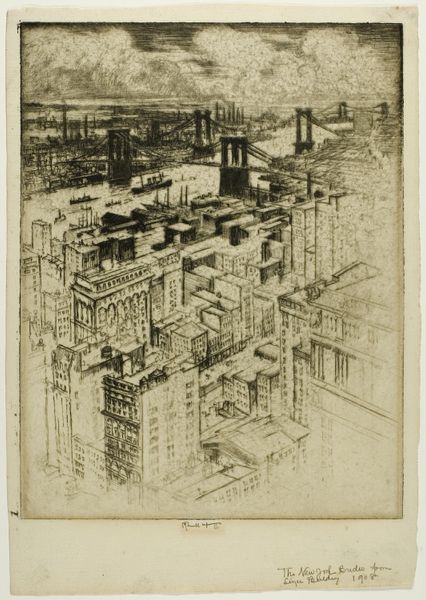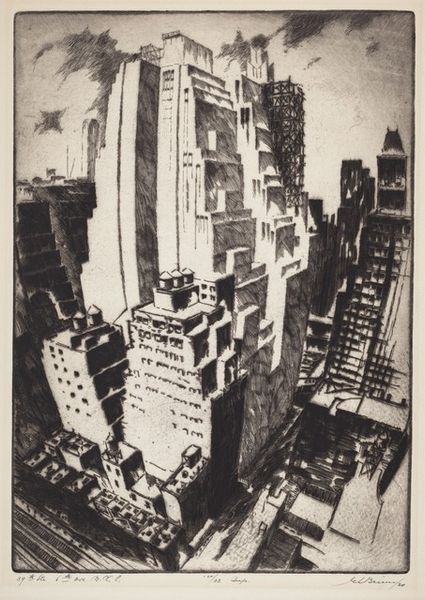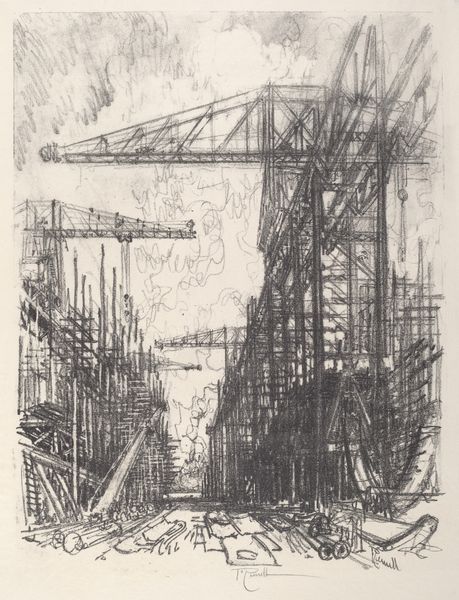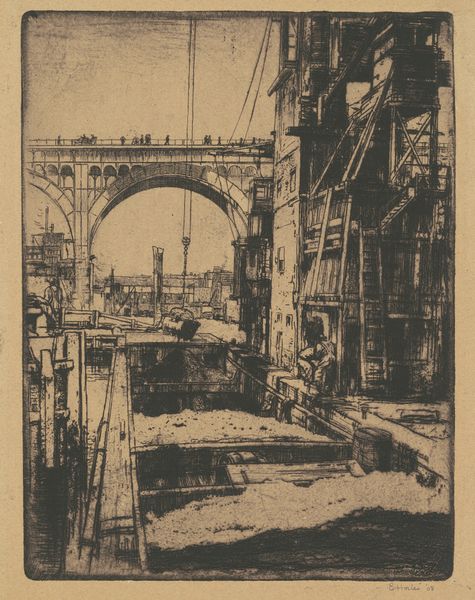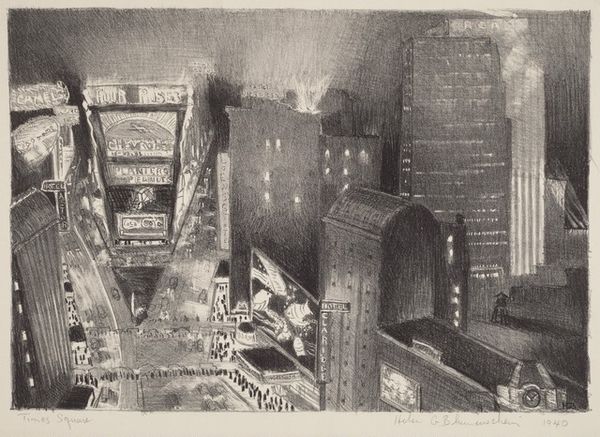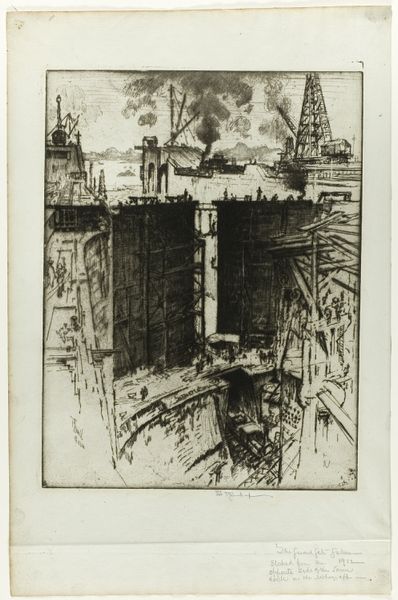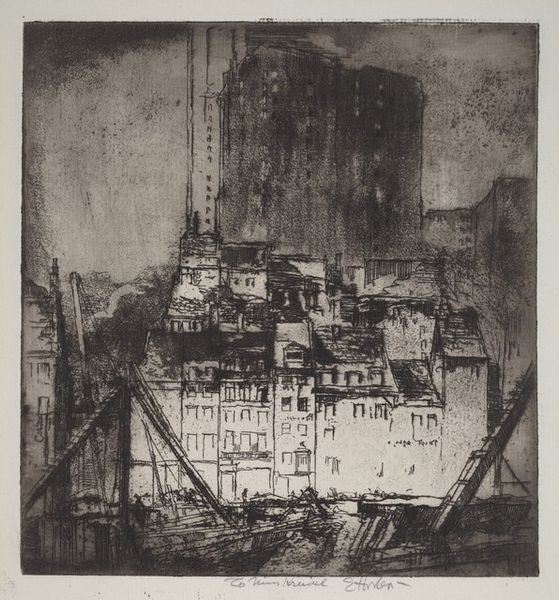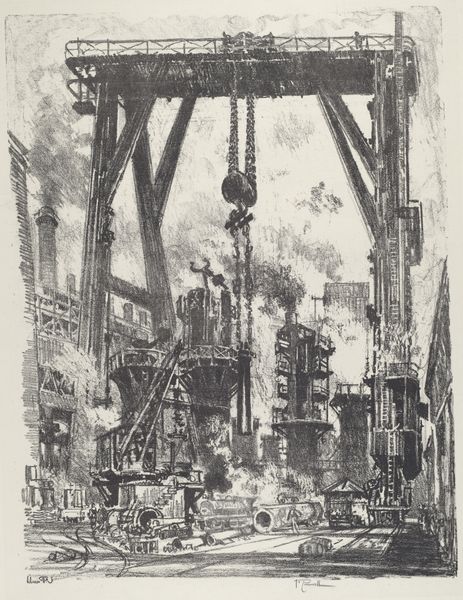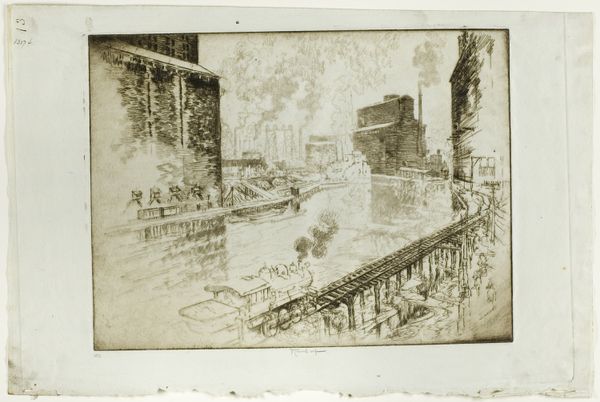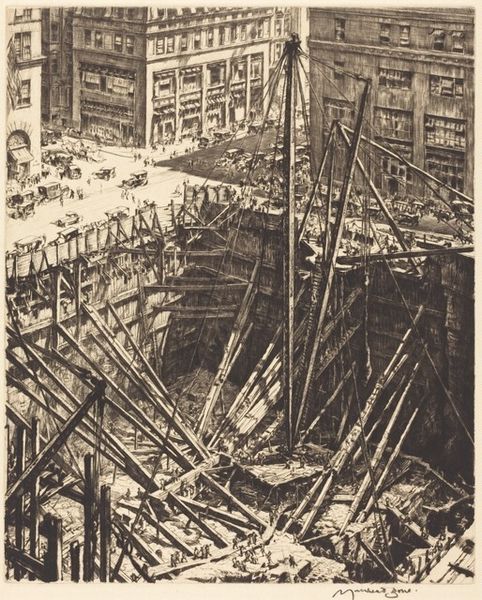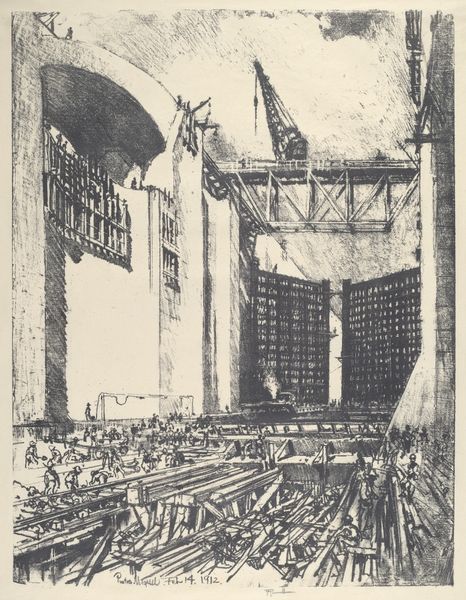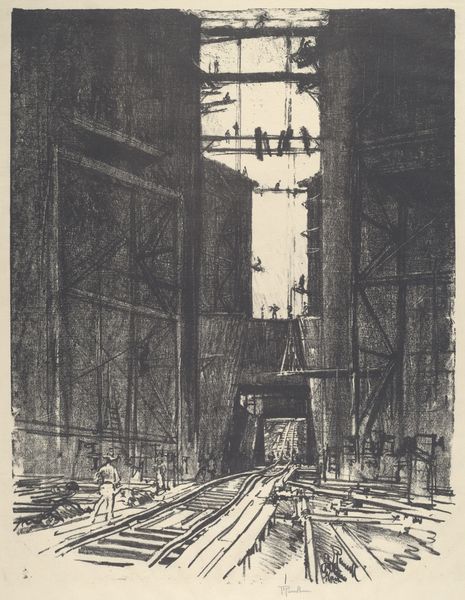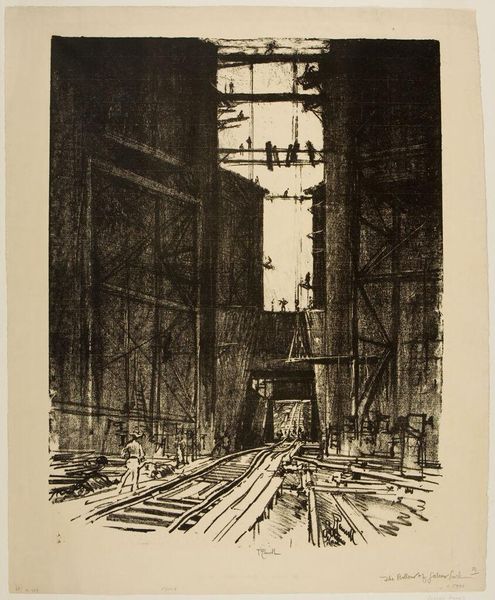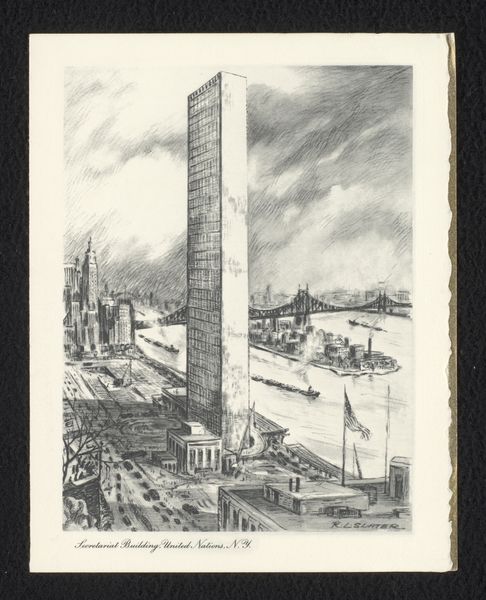
drawing, print, pen
#
drawing
# print
#
pen sketch
#
landscape
#
pen
#
cityscape
#
modernism
Copyright: National Gallery of Art: CC0 1.0
Editor: We're looking at Joseph Pennell's 1912 print, "The Guard Gate, Gatun Lock," a pen drawing of the Panama Canal construction. It’s overwhelmingly industrial. So much chaotic energy. What can you tell us about this image? Curator: It's more than just industry, it's about power, control, and the taming of nature. Consider the date. 1912. The Panama Canal wasn't just an engineering feat, but a potent symbol of American exceptionalism and imperial ambition. How do you think the print engages with the narrative of progress? Editor: Well, the intricate detail captures the immensity of the project, but almost romanticizes the industrial scene. Curator: Indeed. But for whom? While Pennell presents this monumental achievement, consider the untold stories, the marginalized labor force of mostly Black workers whose sacrifices literally built this vision of progress. This print is an interesting record in how it glorifies a particular point of view while obscuring a history of oppression and labor exploitation. Editor: So you see the romanticism as…a form of propaganda? Curator: It certainly perpetuates a narrative that erases the uncomfortable realities of its creation. What if we shift our focus from the grandiose structures to the bodies that built them, often under brutal conditions? How does the image shift for you then? Editor: It casts the entire scene in a darker light. It forces you to reconsider who truly benefited from this "progress." Curator: Exactly. It's vital to examine these historical works critically. What once might have been interpreted as progress can be re-contextualized as a manifestation of unequal power relations. Editor: That makes me think about the ethical implications of art as historical documentation. Thanks for opening my eyes to new perspectives. Curator: It is crucial for art to ask these tough questions; otherwise, it fails to act as a proper historical record for contemporary audiences to learn from.
Comments
No comments
Be the first to comment and join the conversation on the ultimate creative platform.
